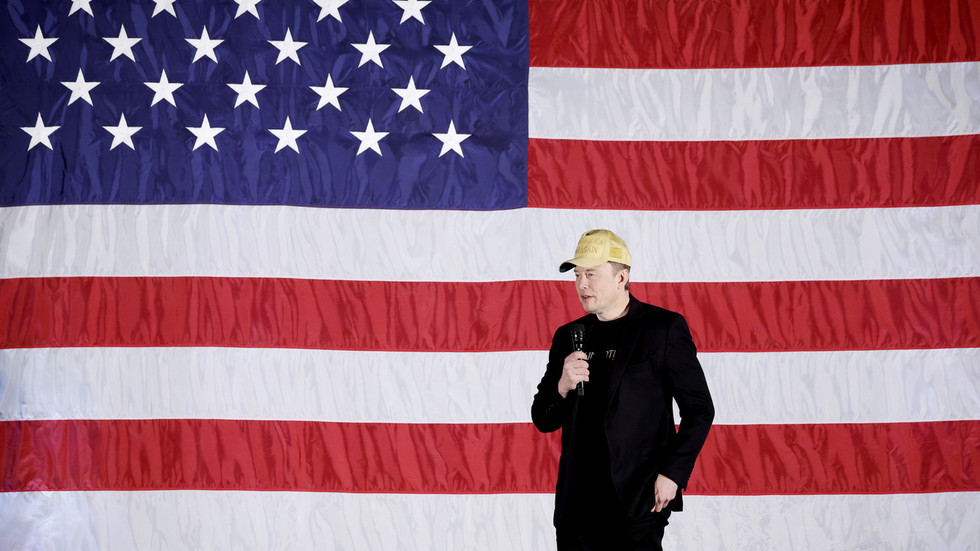In a controversial exchange, the EU’s outgoing commissioner for values and transparency, Vera Jourova, has publicly criticized Elon Musk, CEO of social media platform X (formerly Twitter), accusing him of failing to address rising antisemitism on his platform. In an interview with Politico magazine, Jourova described Musk as someone who struggles to differentiate between “good and evil,” suggesting that he is not equipped to manage the significant ethical responsibilities that come with running a platform of X’s scale. She charged that Musk has inadvertently fostered an environment where antisemitism thrives, labeling X as “the main hub for spreading antisemitism.” Despite never having met Musk directly, Jourova’s strong rhetoric reflects her deep concerns about the influence of social media figures on public discourse and societal norms, particularly in relation to hate speech and the handling of antisemitic rhetoric.
Musk fired back at Jourova’s remarks through his platform, suggesting that she should reflect on her own perceptions of evil. His response drew attention to the contentious nature of social media discourse, especially between influential figures and regulatory bodies. Musk has faced criticism from various sectors for his management of X, particularly regarding the platform’s policies around hate speech and misinformation. The EU’s stance, which has become increasingly assertive since the adoption of the Digital Services Act (DSA) in 2022, allows for substantial fines against tech companies that fail to remove illegal content or adhere to transparency norms. Musk’s recent leadership has triggered scrutiny as the EU’s preliminary findings indicated that X may have violated several provisions of the DSA.
In light of the DSA, Jourova’s comments highlight broader tensions between tech executives and regulatory authorities over content moderation. She indicated that the EU could take further action against X, particularly in areas where the platform has not met obligations regarding advertising transparency and the accessibility of data for researchers. Musk, who has marketed himself as a proponent of free speech and transparency, may face challenges reconciling those values with the intricate demands of compliance with European digital regulations. His claims that X has a lower prevalence of antisemitism than other social media platforms stand in stark contrast to Jourova’s assertions, contributing to a complex debate about the ethics of moderation and accountability in the tech industry.
Since acquiring Twitter in late 2022, Musk pledged to transform the platform into a bastion of free speech and transparency, aiming to denounce hate speech through various public stunts, including his visit to Auschwitz. However, critics argue that despite these gestures, substantial systemic changes have not been effectively implemented to combat hate speech, including antisemitism. Musk contends that the challenges of managing a platform with upwards of 600 million users make it unrealistic to completely eradicate hate speech, leading to his controversial position that some level of antisemitism is unavoidable within this context. His perspective raises critical questions about the inherent responsibilities of platform owners regarding content moderation, especially amidst allegations of declining content standards and increased hate speech incidents.
As the debate rages on, Jourova’s comments resonate with the larger international conversation surrounding the obligations of tech companies in mitigating hate speech. Her assertion that digital platforms should serve the public good underscores a growing demand for accountability in the tech sector, particularly as it relates to the spread of misinformation and hate propaganda. The response from Musk illustrates the polarized nature of discourse regarding social media and its impacts on society. As users and regulators alike scrutinize the efficacy and ethical implications of content moderation policies, Musk’s defiant stance reflects a broader struggle between innovation, free expression, and social responsibility.
In this digital age, the responsibility of tech giants like Musk’s X extends beyond mere profit; it encompasses the need to foster safe and inclusive online environments. Both Jourova’s and Musk’s viewpoints highlight a critical impasse: the challenge of balancing free speech and safety while navigating complex regulations. How this debate unfolds will significantly influence the future landscape of social media governance, potentially reshaping the way platforms engage with issues of hate speech, antisemitism, and broad societal concerns. The dynamic interplay between powerful tech executives and regulatory agencies hints at an evolving narrative where the quest for transparency and ethical practices will remain at the forefront of public discourse.

